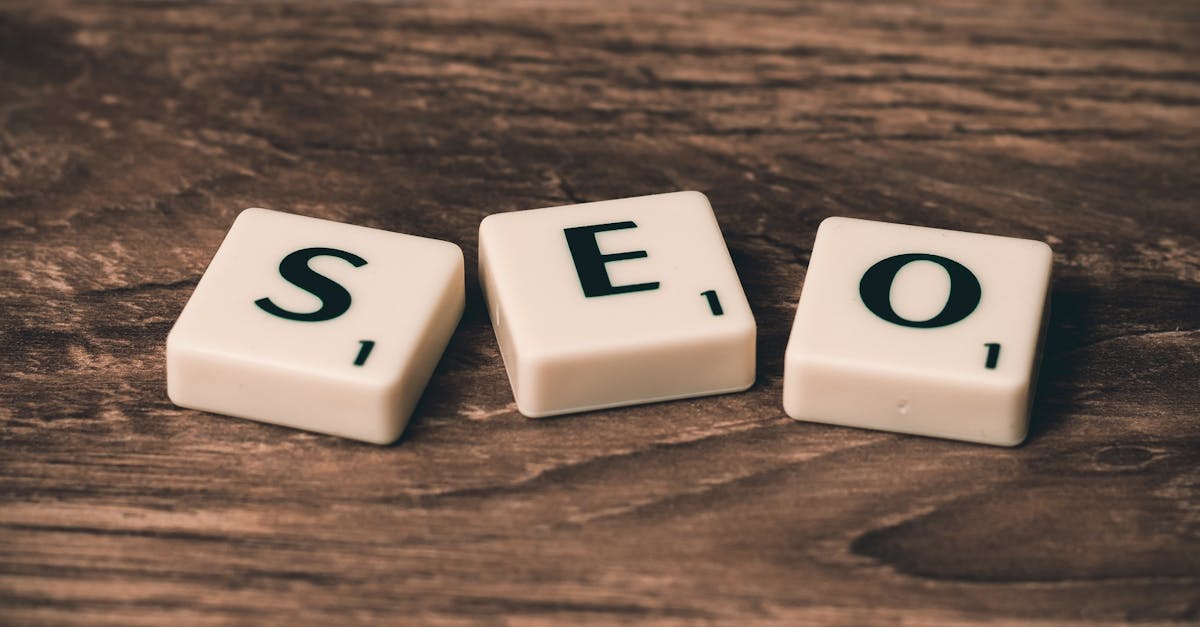
Table Of Contents
Immediate Results
Pay-Per-Click (PPC) Advertising is designed to deliver immediate visibility and traffic to a website. Once a campaign is set up and running, businesses can start seeing clicks and interactions almost instantly. This effectiveness makes PPC an attractive option for companies looking to boost sales quickly or promote special offers without a waiting period. The ability to target specific demographics and keywords enhances the immediacy of results, allowing for precise market engagement.
In contrast, SEO requires time for optimisations to take effect. It involves a more gradual approach to building organic rankings and online presence. While the long-term benefits of SEO can be substantial, the initial stages may not yield the quick returns that PPC offers. The strategy behind using PPC is often to supplement SEO efforts, ensuring that businesses can capitalise on both immediate results and sustained organic growth over time.
Speed of Results in Digital Marketing
In the landscape of digital marketing, the speed of results often plays a crucial role in a business's strategy. Pay-Per-Click (PPC) Advertising offers immediate visibility and can generate traffic within hours of launching a campaign. This rapid response appeals to companies looking to boost their presence quickly, especially during peak seasons or when launching new products. Unlike SEO, which can take weeks or months to gain traction, PPC provides a fast-track option for immediate engagement with potential customers.
On the other hand, while SEO may take longer to establish a strong ranking, its long-term benefits shouldn't be overlooked. The initial investment in PPC can lead to instant results, but ongoing costs may accumulate if the strategy is not managed properly. Businesses often find that while PPC is effective for short bursts of visibility, cultivating organic traffic through SEO can lead to sustained growth and a more stable online presence over time.
LongTerm Benefits of SEO
Investing in SEO can yield significant long-term benefits for businesses seeking sustainable growth. Unlike Pay-Per-Click (PPC) Advertising, which delivers immediate but temporary visibility, SEO focuses on organic rankings that can persist over time. A well-optimised website can attract consistent traffic without the ongoing costs associated with paid ads, making it a more economical strategy for businesses looking to enhance their online presence.
Moreover, SEO contributes to building organic authority and trust among consumers. As a website climbs the search engine rankings, it gains credibility in the eyes of users, who often perceive top-ranking sites as more reputable. This trust enhances customer loyalty, fosters brand recognition, and encourages repeat visits, creating a strong foundation for lasting relationships with customers. In contrast, PPC campaigns may drive traffic but often lack the same depth of connection since users may be less inclined to trust a brand solely based on paid placements.
Building Organic Authority and Trust
Organic authority and trust are cultivated through consistent effort in SEO strategies. Businesses that invest time in creating high-quality content and optimising their websites often find they attract more organic traffic over time. This process not only improves visibility in search engine results but also establishes credibility with users. When potential customers see a brand consistently ranking high for relevant keywords, they are more likely to view it as a trustworthy source of information.
Pay-Per-Click (PPC) Advertising can provide immediate visibility, but it does not build the same lasting authority as SEO. Users often perceive organically ranked sites as more reliable, especially when making purchasing decisions. As businesses establish their presence through regular updates and valuable content, they foster a relationship of trust with their audience. This organic engagement is vital for long-term customer loyalty and can result in a more sustainable, cost-effective marketing strategy compared to the ongoing expenses associated with PPC campaigns.
Budget Considerations for Businesses
When weighing the costs of digital marketing strategies, businesses must consider their budgetary allocations. Pay-Per-Click (PPC) Advertising often demands a substantial initial investment, which can escalate quickly depending on competition and selected keywords. Many companies find themselves navigating unpredictable costs that can dramatically fluctuate with market trends. This variability requires careful planning and ongoing adjustments to optimise campaigns without exceeding budgets.
On the other hand, while the initial outlay for Search Engine Optimisation (SEO) may be lower, it demands patience and consistency for long-term results. SEO requires investment in quality content, technical improvements, and link-building efforts. This approach can yield sustainable traffic that continues to grow over time, making it a potentially more cost-effective strategy for businesses willing to commit resources in the long run. Balancing these two strategies requires careful consideration of both immediate financial constraints and future marketing goals.
Allocating Resources for Marketing
Effective resource allocation is essential for any marketing strategy, whether a business opts for Pay-Per-Click (PPC) Advertising or prioritises Search Engine Optimisation (SEO). With PPC, businesses can control their spending by setting daily budgets and bids for ads, ensuring a predictable expense. This allows for quick entry into the market and immediate visibility, making it a suitable choice for campaigns requiring rapid results or those tied to specific events.
On the other hand, SEO generally requires a more significant upfront investment in content creation and optimisation but pays off over time by generating organic traffic. Allocating resources towards high-quality content and link-building initiatives can establish a strong online presence. While PPC may offer short-term spikes in visibility, a balanced approach involving both strategies can create a sustainable marketing plan that maximises returns.
FAQS
What is the main difference between PPC and SEO?
PPC (Pay-Per-Click) involves paying for ads that appear on search engines, providing immediate visibility, while SEO (Search Engine Optimisation) focuses on organic search results and aims to improve website ranking over time through content and technical improvements.
Is PPC more cost-effective than SEO for small businesses?
It depends on the business's specific needs and goals. PPC can provide quick results, but costs can add up over time. SEO typically requires a larger initial investment but can lead to free organic traffic in the long run, making it potentially more cost-effective for small businesses.
How quickly can I see results from PPC compared to SEO?
PPC can deliver immediate results as soon as the campaign is live, while SEO usually takes several months to show significant improvements in search rankings and traffic due to the time needed for search engines to index and rank a site.
Which strategy is better for long-term growth?
SEO is generally considered better for long-term growth, as it helps build organic authority and trust over time, leading to sustained traffic without ongoing costs associated with paid advertising.
Can a business use both PPC and SEO simultaneously?
Yes, many businesses choose to use both strategies together. PPC can provide immediate visibility and traffic while SEO builds organic rankings, creating a comprehensive digital marketing strategy that leverages the strengths of both approaches.

















































